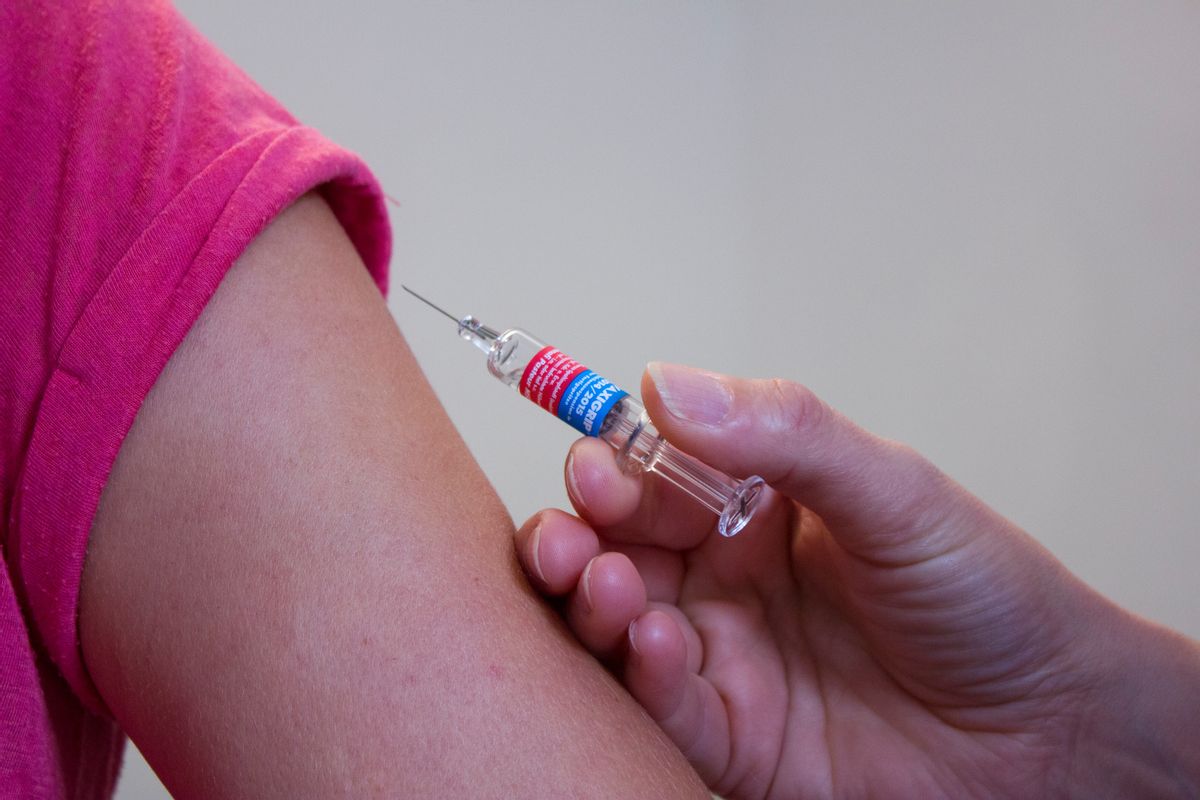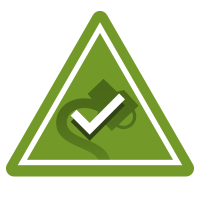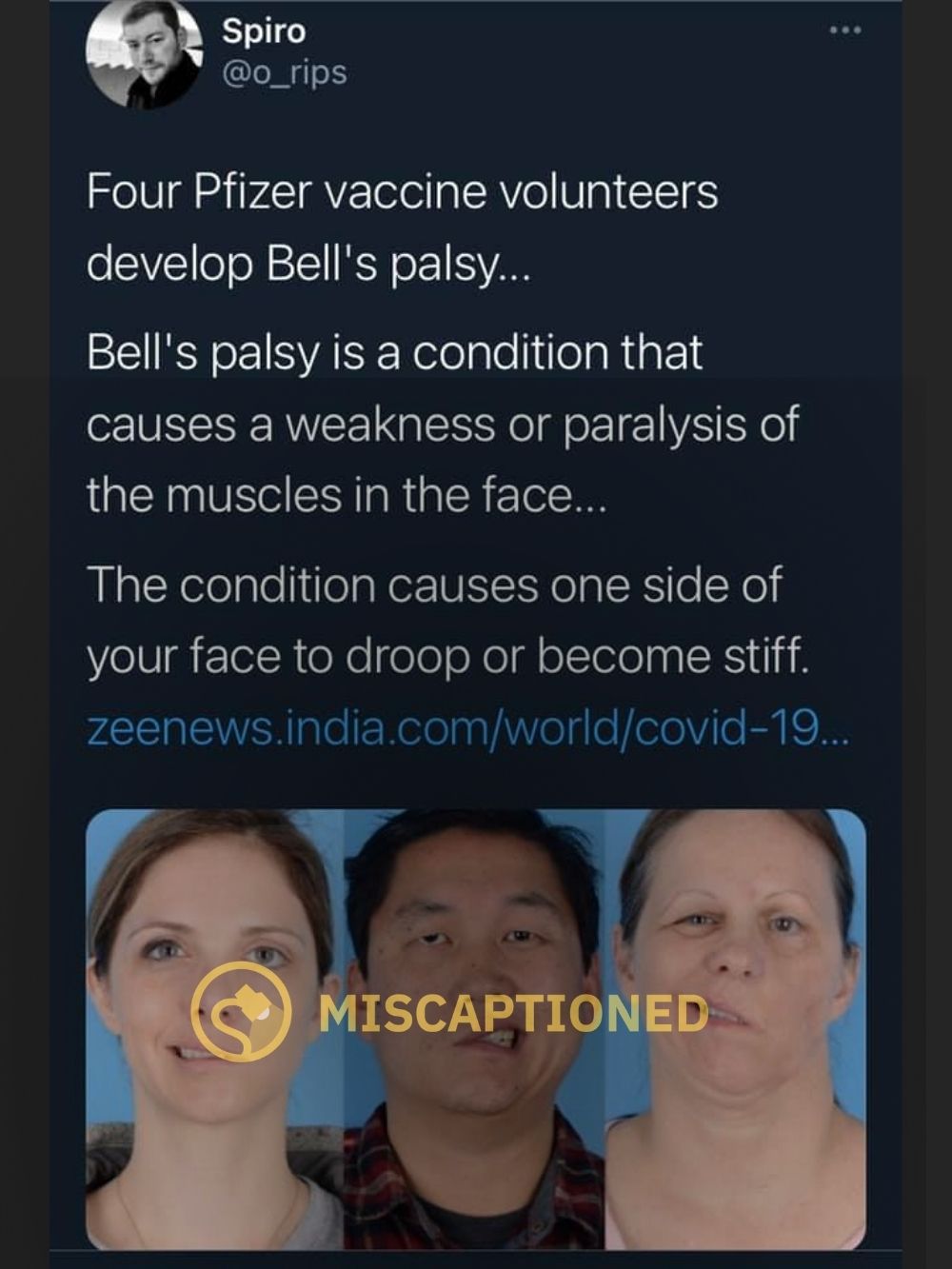Four out of more than 20,000 patients who took Pfizer's trial vaccine for COVID-19 developed bell's palsy.
As of this writing, there's no definitive evidence that the vaccine caused Bell's palsy. The frequency rate of people who developed Bell's palsy after taking the vaccine did not exceed the background rate of the general population. One viral iteration of this claim featured people unconnected to the COVID-19 vaccine trials.
In December 2020, the U.S. Food and Drug Administration (FDA) released additional data concerning a COVID-19 vaccine from the pharmaceutical company Pfizer ahead of a meeting with an independent panel of scientists and public health officials to discuss the new drug's approval. Although the report showed that the vaccine was largely effective, some social media users singled out one seemingly scary statistic: Four of the patients who received the vaccine developed Bell's palsy, a type of temporary facial paralysis.
The information contained in the above-displayed tweet is largely accurate, although it should be noted the individuals pictured at the bottom of this message are not the same individuals who were involved in the COVID-19 vaccine trial. This image dates back to at least 2019 and was apparently included to illustrate the sort of facial paralysis that occurs with Bell's palsy.
More importantly, this tweet (and dozens more like it) may give readers the impression that this vaccine caused Bell's palsy. As of this writing, there's no evidence to support that assertion.
The FDA noted in its report that four people (out of about 22,000) in the vaccine group developed Bell's palsy, while no cases were reported in the similarly sized trial group. However, this low incident rate is consistent with the expected background rate of Bell's palsy in the general population.
The FDA wrote:
Bell's palsy was reported by four vaccine participants and none in the placebo group. These cases occurred at 3, 9, 37, and 48 days after vaccination. One case (onset at 3 days postvaccination) was reported as resolved with sequelae within three days after onset, and the other three were reported as continuing or resolving as of the November 14, 2020 data cut-off with ongoing durations of 10, 15, and 21 days, respectively. The observed frequency of reported Bell's palsy in the vaccine group is consistent with the expected background rate in the general population, and there is no clear basis upon which to conclude a causal relationship at this time, but FDA will recommend surveillance for cases of Bell's palsy with deployment of the vaccine into larger populations.
Pfizer Canada President Cole Pinnow reiterated this point to the CBC:
https://www.cbc.ca/player/play/1829670467550/


